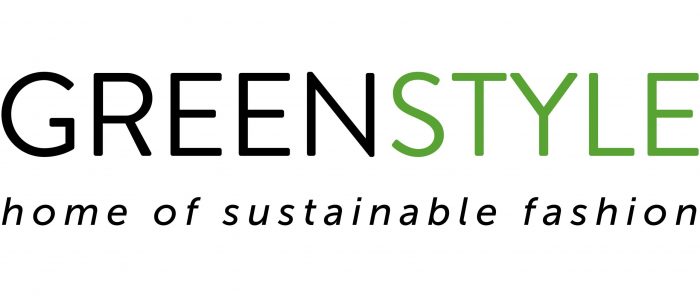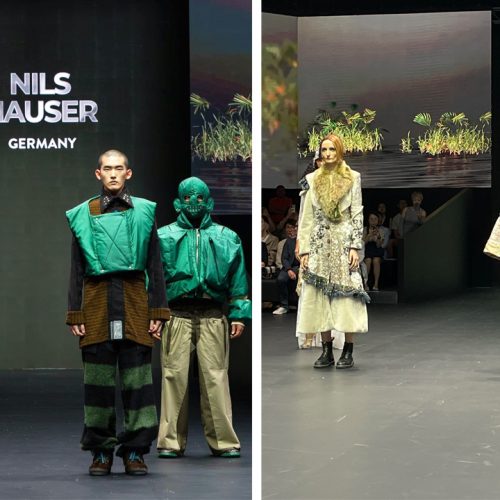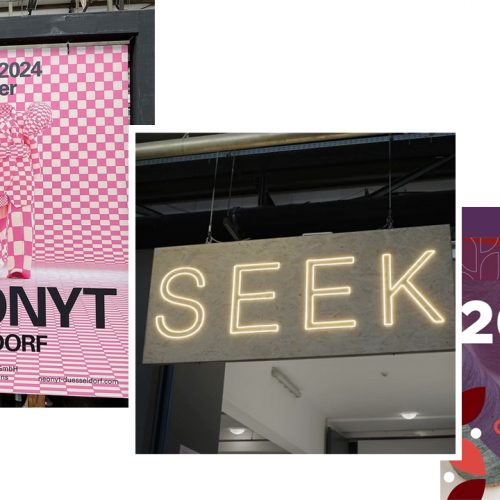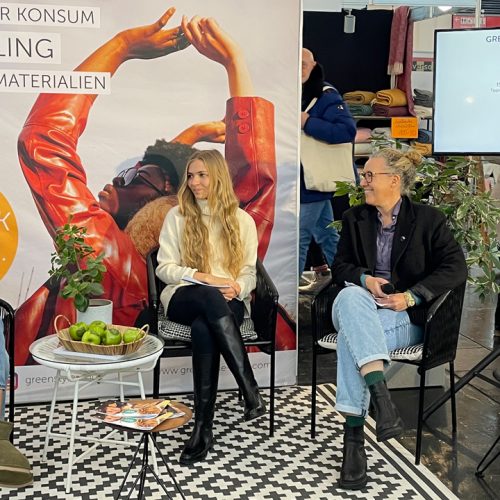When I met Julia Post, influencers and content creators were still bloggers. At that time there was a highly motivated and fairly active Munich slow fashion community that exchanged ideas and met (Salon Green), organized events (legendary, the Fashion Revolution Day in the pedestrian zone in Munich).
In the meantime, almost all members of the Munich squad have moved on somewhere (Spoiler: It’s not easy to volunteer to save the world when others are destroying it full-time – more on that in my LinkedIn newsletter >>>). Today they work as coaches, have founded an online shop and advise sustainable brands, run performance marketing agencies, founded the communication platform GREENSTYLE (*wink*) or went into politics. Just like Julia Post.
At that time, Julia Post had already founded her own movement – her Coffee To Go Again project >>>, which advocates the voluntary renunciation of disposable cups. She became part of the zero-waste community and also wrote a book. A fight against windmills. In 2017, the city is also declaring war on the paper cup. Thank you Julia! Since then, she has been committed to waste avoidance, circular economy and the careful use of our resources and livelihoods.
This is how lived change works. Also in politics
Julia no longer just wants to talk to decision-makers. She wants to make decisions herself, accelerate processes and be able to bring about systemic changes. So she is studying Political Science (B.A.) and Governance (M.A.) at the FernUniversität in Hagen. Julia has been on the Munich City Council since March 2020. In the same year she joined the Greens – Pink List faction. There she is responsible in particular for economic policy, sustainable public procurement and recycling management and waste prevention. In October, she was nominated by her party as a direct candidate for the west of Munich for the Bavarian state elections in 2023 (voting district 106 Munich-Pasing).
Julia’s topics: Green Economy. Social Innovation. Future work.
We were just allowed to invite Julia to a panel on the subject of “Sustainable fashion labels. Opportunities & challenges for the creative economy in Munich” at our PUREVIU panels in Munich City Hall and are overjoyed that Munich has another person in City Hall who understands our textile topics, in addition to the second mayor, Katrin habenschaden. And because Julia is doing exactly that, on the occasion of the 10th anniversary of the collapse of the Rana Plaza building in Bangladesh (Fashion Revolution), in which over 1,300 textile workers died, she is submitting an application for the sustainable and fair procurement of work and service clothing in Munich
The department for climate and environmental protection (RKU) is asked to support the contracting authorities and the municipal departments in aligning procurement in the textile sector for the city administration as consistently as possible with sustainability and fair standards.
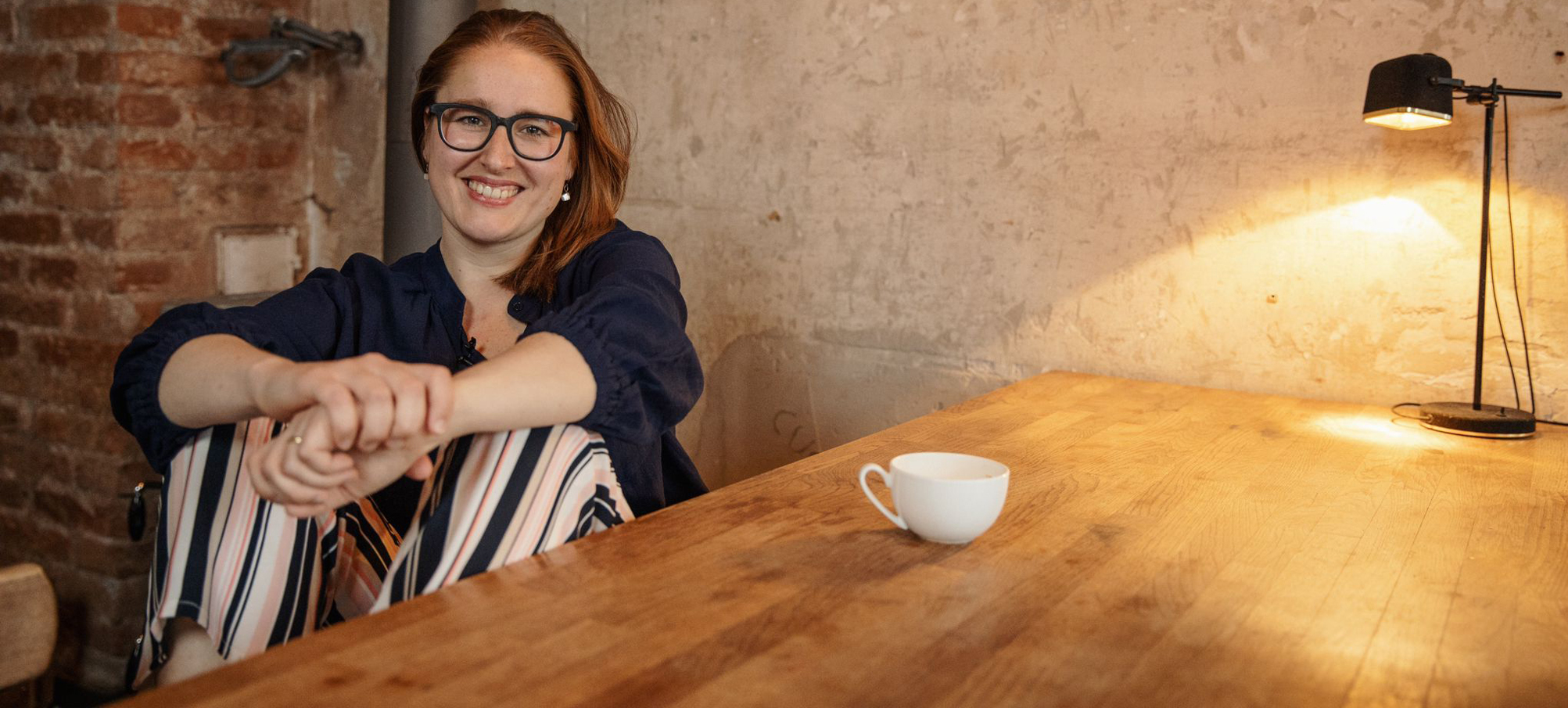
I asked Julia a few questions about it:
GREENSTYLE: An application for sustainable and fair procurement in the textile sector, in this case work and service clothing. Why is this topic so important that you have formulated an application for it?
Julia Post: The textile sector is a particularly effective lever for improvements in the area of the environment and working conditions: it causes around 10 percent of global CO2 emissions. Forced labor and serious labor rights violations continue to occur there. On top of that, there are also masses of textile waste. Of this, less than one percent is recycled and reused worldwide. Added to this is the enormous water consumption and pollution caused by the production and dyeing of textiles. At the same time, public procurement in Germany accounts for around 15 percent of gross domestic product with a volume of around half a trillion euros. The public sector is thus one of the most important market participants. With a share of around 58%, the municipalities are by far the largest public buyers. And Munich is the largest municipality in Germany. So we have a special responsibility and role model function.
GREENSTYLE: What volume are we talking about – how much urban workwear is out there?
Julia Post: The city of Munich purchases textiles worth around €3.9 million every year on average.
The city of Munich purchases textiles worth around €3.9 million each year on average.
GREENSTYLE: Where does Munich stand in a nationwide comparison in terms of achieving Goal 12 of Agenda 2030 “Sustainable consumption and production patterns in a nationwide comparison?
Julia Post: Since the 1990s, Munich has repeatedly taken on a role as a role model and a nationwide pioneering role, e.g. with city council resolutions against exploitative child labour. But as an entrepreneur you know best: Every day is day one. We must not rest on our laurels. We want it to stay that way. And that’s exactly why we need to start more initiatives like this. Especially since we still have room for improvement, especially in the textile sector, and an incredible amount has happened there in recent years. We have to reflect these developments in our procurement policy and update them.
GREENSTYLE: Let’s be realistic: How quickly can a project like this be implemented?
Julia Post: The administration is the implementer of such applications and now has 6 months to develop a proposal on the subject, which we can then decide on. This is still only a decision on paper. But it forms the basis for something to actually happen. And that doesn’t mean just pushing a button, it’s a process. Realistically, this will start in about a year and then have a long-term effect, e.g. with training for administrative staff or networking with civil society through the technical discussion that is part of our application.
GREENSTYLE: Can companies / production facilities register and apply here if they produce sustainable work and service clothing?
Julia Post: Of course, that’s always possible in the city’s tenders. It would certainly also be exciting to have relevant companies present at the technical discussion. And another hot tip for all companies – I’ll put my hat on as a board member of the Social Entrepreneurship Network Germany e.V.: Become a member of Buy Social Germany >>>. We are currently building a network there with exactly this idea: If companies have to buy products and services anyway, why not from social enterprises? In this way, classic companies gain sustainability innovations for their supply chain and social enterprises reliable partners for even more impact. I hope that we will also find public partners in this context. Of course, I’m already working on it for Munich.
GREENSTYLE: What role do fair working conditions in the textile industry play in politics?
Julia Post: Textile production has to be green AND fair. Unfortunately, in reality, the verification and measurement of fair working conditions is much more difficult than that of environmental standards. This is why this area of procurement policy presents us with greater challenges.
GREENSTYLE: Can we look forward to next steps in the city of Munich?
Julia Post: What would really be an incredible success of my initiative and what I am aiming for is the extension of KO criteria and minimum requirements. Currently the following applies: Providers of textile products (shirts, shirts, headgear, high-visibility and weather protection clothing) can only receive a surcharge if the goods on offer have the “ÖkoTex Standard 100” label or something similar. It checks the pollutant residues on the end product. I think there is more! For example, this seal does not take the entire production chain into account and completely ignores working conditions. In addition, many more textile products should be included. What about dish towels, trousers or jackets, for example? And starting next year, the Munich fashion prize “fair & sustainable fashion prize” will be awarded. So there are many next steps in Munich that we are looking forward to and that we can work on together.
Ideas and solutions are there. I want these ideas to surpass themselves and become reality.
GREENSTYLE: What do you wish for the (textile) future?
Julia Post: The ideas and solutions are there. I want these ideas to surpass themselves and become reality. This future doesn’t just happen to us, we make it.
